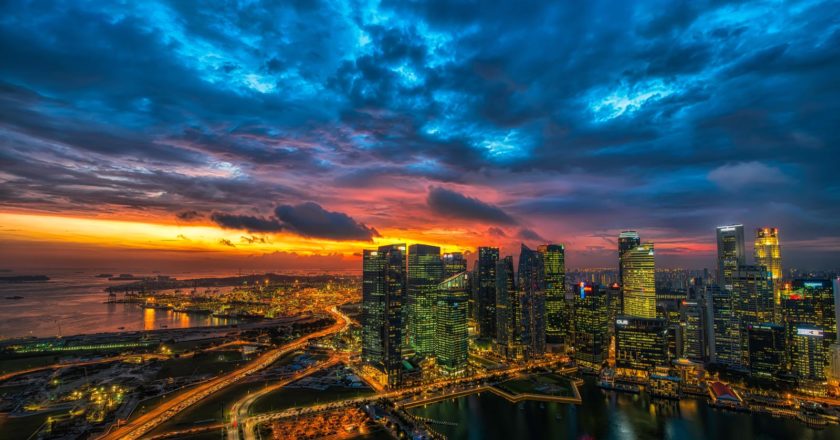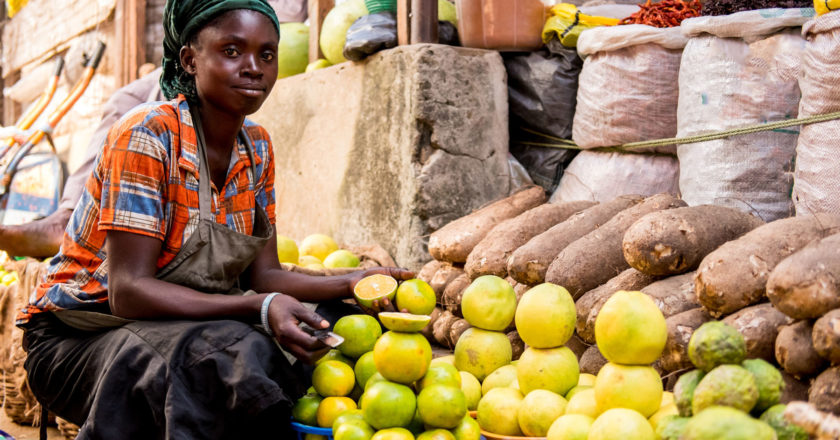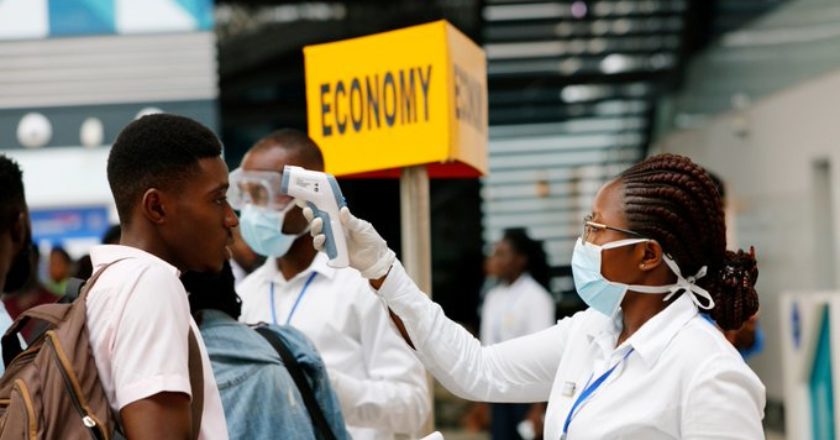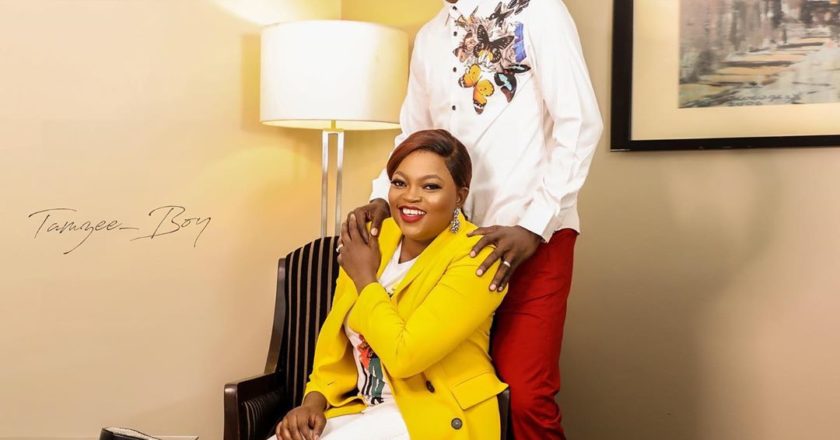It is not for nothing that it is said that two heads are better than one. Then Prof. Kimse Okoko modified it to ‘two good heads.’
I believe that Gov. Nyesom Wike should involve his entire cabinet members in managing Covid-19 in Rivers State. If he does that, I believe every Commissioner would be able to come up with their sub plans which will form a consolidated plan for the State Committee on Covid-19 to execute. Why am I saying this?
The Commissioner for Health, for example, should be able to have the presence of mind to make input as to how he expects sick residents to reach out and be attended to during the present total lockdown. He will make suggestions as to what those in distress, pharmacies, hospitals and other outlets should do and how during the lockdown. We cannot afford to let people die to save lives, like in digging a hole to fill another hole.
The Commissioner for Communication & Information will aggregate and outline his plans on how to proactively communicate every aspect of government actions in fighting Covid-19 to the people and in the process collate feedback which will further assist government in further tinkering up its plans and actions.
The Commissioner for Water Resources is likely to table his plan to intervene and temporarily provide water for the majority of Port Harcourt residents who do not have their own source of water supply apart from patronising water hawkers and kind-hearted neighbours. Or even state clearly that nothing can be done so that government will be aware that the people are on their own when it comes to water supply during a total lockdown.
The sanitation authority should be able to issue advisory to the public on how to deal with refuse generated during total lockdown, etc.
It does not give anyone joy to keep pointing at Lagos neither is it that they are perfect over there. But man naturally recalls what works. Long before the lockdown in Lagos was put into effect, selected neighbourhood fields were identified and plans made to sell food and medicine to residents. It may not be perfect but something was done.
In all, relevant ministries, departments and agencies will make helpful input towards giving government fight against Covid-19 a human face by lessening the burden of the fight on the common man.
Lockdown is an effective way to break the chain of Covid-19 spread but must be applied in a sensible way in different locales. There is no home in London, New York or Madrid that potable water is not reticulated into. Except you did not pay, there will always be water. Such is not the case in parts of our cities here where everyone owns his/her own water source. Then there are many areas where we have what is commonly referred to as ‘yards’ where many residents’ source of water is either from aboki water hawkers or good hearted neighbours. How much water can anyone store in such situations?
The governor of Rivers State should assemble his entire team and ask for input from each and every one of them to enable him fashion out a more organised war against Covid-19 in the State without losing sight of what is working elsewhere. With a novel virus like Coronavirus, no man knows it all and none can reinvent the wheel. He has the men no doubt. His Committee can then go ahead and implement. Meeting with State Security Council alone is not enough. That is what we are saying!
I believe that the next ideal steps that should be taken by government to checkmate Covid-19 pandemic in Rivers State can be compartmentalised into two areas. One should aim at blocking entry into the State by carriers of the virus and the second should be to contain community spread that has already started manifesting.
For the purpose of denying access into the State by infected persons, instead of locking down Port Harcourt and Obio/Akpor local government areas, government should effectively lock down the borders between other states and the five gateway local government areas of Ikwerre, Emohua, Oyigbo, Etche and Tai. Everything should be done to block entry into the State through those border LGAs. However, in order to allow for agricultural produce and other essential items to be brought into the State, government should establish terminals or outposts at Emohua, Imo River Bridge area, Etche end (off Eleme Junction) and at Tai end of the East/West Road to screen and ensure that only agricultural produce and other essential items are brought into Rivers State.
On dealing with the ongoing community spread within Rivers State, it would be advisable to take another look at what Dr. William Schaffner, the US Centre for Disease Control (CDC) Advisor said a while ago concerning Covid-19. He said, “Don’t open up too fast, too quick and too soon. Covid-19 isn’t going away soon. The mask is the new normal.”
Phased Re-opening
Taking a cue from that, it will be necessary for government to evaluate all sectors of human activities in the state such as education, economy, transportation, entertainment, hospitality, agriculture, etc. and work out a safe and structured template for opening them up without jeopardising the effort to stem the pandemic. Schools should reopen in phases; eateries and bars should continue with take away or home delivery services for now; farmers may have to immediately embark on planting (if they have not) in a carefully planned way since theirs is seasonal, and so forth.
For public transportation, overloading of vehicles should continue to be discouraged but because of our peoples’ attitude, social or physical distancing is not going to work. Therefore, strict wearing of face mask and perhaps gloves should be enforced for all commuters.
Certain health facilities should be equipped to serve as first port of call for sick people so that they can be SAFELY diagnosed before going to the hospital or clinic of their choice. On the other hand, all clinics and hospitals should be made to establish safe diagnostic points. This will help stop our clinics and hospitals from becoming Covid-19 ‘hotspots.’
All the established protocol of hand washing, social distancing and avoiding crowded spaces should be strictly maintained and enforced.
Face Mask
It appears that with the arrival of vaccines not yet in sight, the face mask will become part of our lives for some time in everything we do especially in public. It helps to protect us from others and helps protect others from us. Government should facilitate the availability of the face mask to all and sundry. This should be distributed and sold evenly across the state and at a token price at least to confer some value to it. People tend to abuse free things. When schools reopen, wearing of face mask should be compulsory until such a time when we become 100 percent covid-19 free.
Testing
Like it has been said severally, testing is key. However, while I agree I still see a dicey dimension to testing. It is obvious that someone who tested negative now may still pick up the virus the next minute or hour or days depending on his/her exposure to it. More so, someone who tested negative may drop his/her guard and end up picking up the virus because both the carriers (especially the asymptomatic ones) still mix freely and innocently. This is why I see strict wearing of mask in public and adhering to specified hygiene protocols very important. Testing helps in its own way, do not get me wrong, but the figures will always change because of new infections. Testing does not do much to stop new infection because everyone still function in the same milieu or space. There is no way to identify an asymptomatic carrier as to avoid the person. All the same, government should also make testing available at border posts to protect residents of the State.
Isolation/Treatment Centres
In the developed world, most tested and confirmed carriers of the virus still recuperate at home. Only those with severe or breathing difficulties that are admitted into treatment centres. They isolate in a part of their residence until they get better. However, with the dearth of spacious and comfortable accommodation in our parts, very few can self-isolate safely at home. Therefore, more isolation centres should be provided to cater for the growing number of those that either test positive and unable to safely self-isolate at their homes or those whose symptoms have become severe requiring ventilators and close monitoring and treatment.
Vaccination & Treatment
The State Ministry of Health should constantly monitor what is happening nationally and internationally as to ascertain when help in form of vaccine and medication are available so that the State can procure.
Education & Communication
The government should adopt a multilingual and multiplatform approach to regularly and intensively educate residents on the dangers of Covid-19 and how to stay safe from the virus. Government should also be proactive in communicating its actions and plans to the people from time to time.
State Government Relations
The Rivers State Government should do all that it can to downplay any confrontation, power show or grandstanding with the federal authorities but cooperate very often to get issues sorted out for the benefit of all. The government should understand and appreciate the diligence of the IOCs in dealing with issues of Health & Safety. They are the last group that will treat the issue of Covid-19 with levity as to endanger the lives of their own workers and that of others. Government must resist the lure to drag them into the fray for any reasons. Since most of the IOCs turned their back on Warri, things have not been the same with the economy of that, hitherto, bubbling city.
Outlawing Of Street Begging
The government should use the opportunity of the lockdown to formally ban street begging in the State. This is necessary to forestall a return of street begging especially in Port Harcourt metropolis as government reopens business. This will send a strong message to beggars and intending ones who might want to travel from their states to ply their thing in the State. Overwhelming number, if not all street beggars in the State, are from outside of Rivers State. Given that the pandemic is now expected to be with us for sometimes means that all possible carriers of the virus must be denied space to transmit it to others.
Fumigation of Markets, Other Public Places
Elsewhere that lockdowns are being implemented, one of the most important steps taken by government is to massively disinfect public places, streets and transportation hubs that experience huge human traffic. Despite the partial and now total lockdown in PHALGA and Obio/Akpor, the Rivers State Government is yet to disinfect or fumigate a single market, street or facility. This has left many people wondering what real purpose the lockdown is supposed to serve. Moving forward, government should regularly declare lockdowns for two Saturdays in a month for the purpose of regularly fumigating public places especially markets and public buildings such as the government Secretariat Complex.
The Government should aim to diligently deal with all issues relating to Covid-19 in the same just and fair manner that its Committee on Palliatives appears to be handling the distribution of food items across the State even if the feeling is that the Committee should have exercised more inclusiveness by extending palliatives to indigent non-indigenes in PHALGA and Obio/Akpor.
Whether it is partial or full lockdown, at all times, attention must be focussed on providing the people access to FOOD, WATER & MEDICINE as the State Government and the people battle with Covid-19 pandemic. From all available and emerging fundamentals by experts at the global level, the war against Covid-19 may not be a dash, it is very likely to be a marathon.





